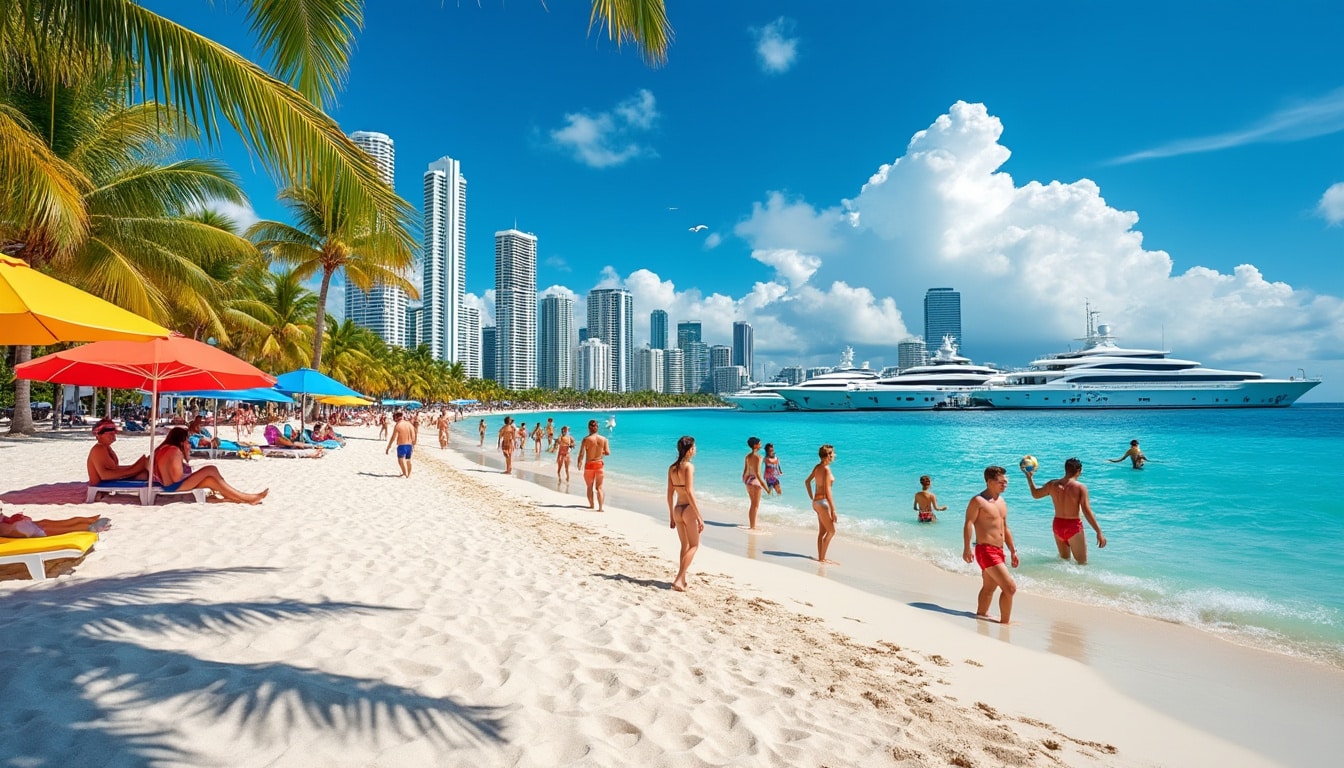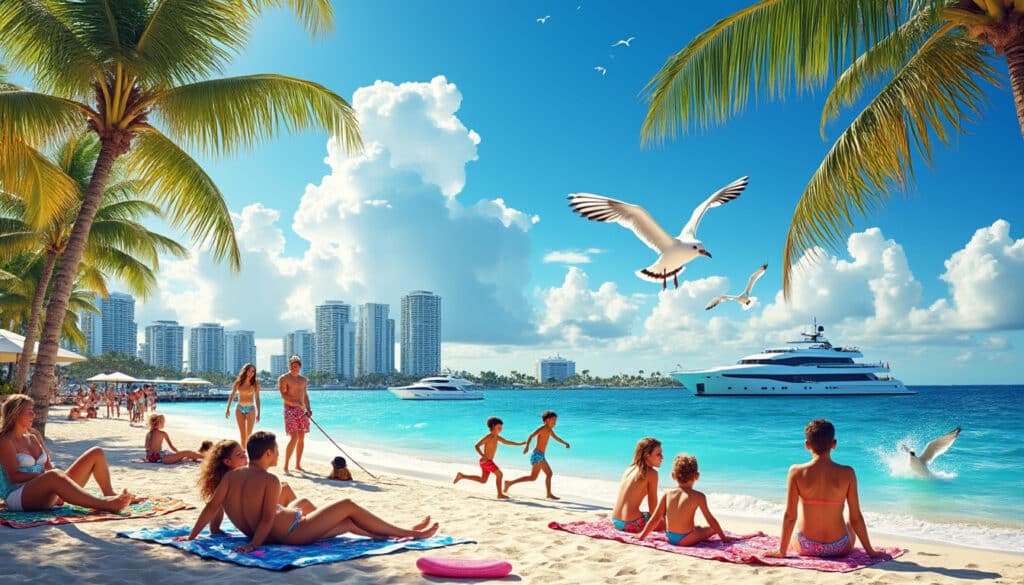Fort Lauderdale, known as the “Venice of America,” is a vibrant city set against the picturesque backdrop of Florida’s Atlantic coastline. It is a bustling hub that features a unique blend of stunning beaches, a complex network of canals, and a flourishing cultural scene. With its inviting climate, myriad of attractions, and a rich historical tapestry, Fort Lauderdale has garnered attention from tourists, residents, and industry professionals alike. The city’s dynamic economy, history fraught with cultural evolution, and thriving arts scene make it not only a top travel destination but also a compelling place to live and work. As we delve into these aspects, we uncover the layers that form the intricate identity of Fort Lauderdale.
Understanding Fort Lauderdale’s Geography and Climate
Fort Lauderdale’s geographical allure is one of its most remarkable features. Nestled along the Atlantic Ocean in Florida, approximately 30 miles north of Miami, the city spans an area of about 36.3 square miles, with a significant portion covered by water. This city is not just about beaches and skyscrapers; it boasts an intricate network of 165 miles of inland waterways, earning it the nickname “Venice of America.” These canals are not only picturesque but also integral to the local economy and lifestyle, facilitating both transport and leisure activities. 🚢🌊
The climate of Fort Lauderdale is another draw for visitors and residents alike. Classified under the Köppen climate classification as a tropical rainforest climate, the city enjoys warm, sunny weather most of the year. On average, Fort Lauderdale experiences over 3,000 hours of sunshine annually, with temperatures hovering around 75.5°F. The balmy weather makes it an ideal destination for beachgoers and outdoor enthusiasts. However, the city does have a wet season from May to October, characterized by brief yet intense tropical thunderstorms. Despite these storms, the mild winters, which rarely see temperatures drop below 60°F, make Fort Lauderdale incredibly appealing. Understanding this climate can help visitors pack appropriately and plan activities around the warm, sunny days that the city frequently offers.
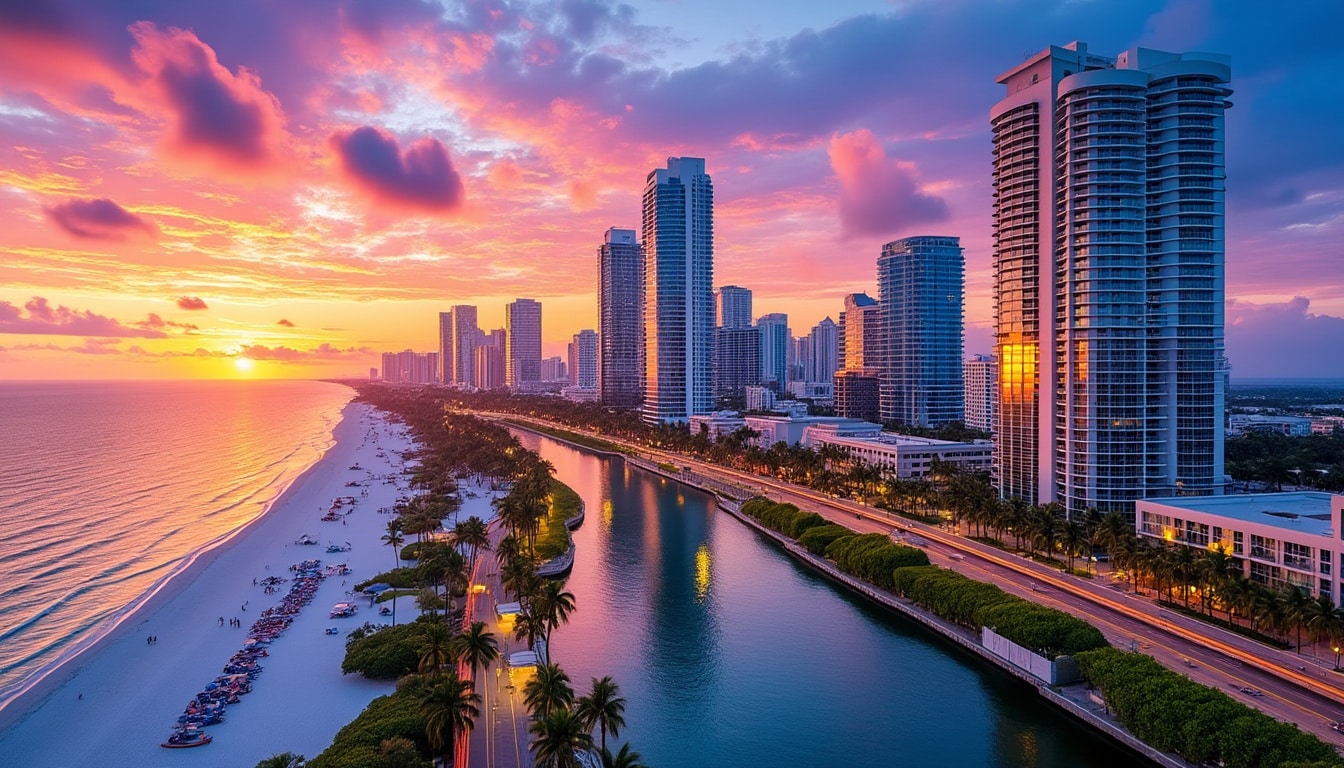
Fort Lauderdale’s Connection to its Waterways
The city’s connection to its extensive waterways is not just geographical but also cultural and economic. These canals provide a scenic route for water taxis, an unconventional yet popular mode of transport for locals and tourists. Water taxis offer a unique perspective of the city, weaving through its beautiful canal system and offering stops at significant landmarks such as the Las Olas Boulevard and the B Ocean Resort. They are an economical and enjoyable way to explore the city’s expanse while soaking in its scenic beauty. 🏖️🚤
This network of waterways also supports Fort Lauderdale’s status as the “Yachting Capital of the World.” With over 50,000 registered yachts and 100 marinas, the marine industry plays a crucial role in the city’s economy. From hosting the annual Fort Lauderdale International Boat Show, which brings in yacht enthusiasts from around the globe, to supporting local businesses that cater to nautical needs, the waterways are indispensable to the city’s identity and economy.
The Rich History of Fort Lauderdale
The history of Fort Lauderdale is both fascinating and complex, reflecting various cultural changes over time. Originally inhabited by the indigenous Tequesta people, the area saw its first European settlers in the 16th century. However, it was not until the 19th century that Fort Lauderdale began laying its modern foundations. Named after a fortification built during the Second Seminole War, Fort Lauderdale was developed slowly over decades, eventually incorporating as a city in 1911.
One of the more captivating historical narratives is the establishment of Fort Lauderdale amid the chaos of the Second Seminole War. Major William Lauderdale, whom the city is named after, led the construction of three fortifications along the New River. These forts have long since disappeared, but they remain an integral part of the city’s lore. Subsequent development did not flourish until almost 50 years later, as the area remained largely undeveloped and fraught with challenges, including natural disasters and economic setbacks.
Fort Lauderdale continued to evolve through the 20th century, with significant population booms post-World War II. The city experienced a surge in development during the land boom of the 1920s, but natural disasters like the Great Miami Hurricane of 1926 and socio-political challenges such as the desegregation of beaches in the 1960s shaped its trajectory. Each of these historical milestones marks a phase of transformation for Fort Lauderdale, contributing to its current status as a thriving multicultural hub.
Modern-Day Reflections of a Storied Past
Today, Fort Lauderdale honors its history through various historical sites and museums, such as the Bonnet House and the Fort Lauderdale Historical Center. These landmarks offer insights into the city’s past, from its time as a strategic military point to its evolution into a vibrant metropolitan area. Participating in cultural tours or visiting the Museum of Discovery and Science allows visitors to bridge the gap between the past and present, providing a comprehensive understanding of how Fort Lauderdale came to be.
Experiencing the Vibrant Culture of Fort Lauderdale
Fort Lauderdale is more than just a sunny getaway; it has a vibrant cultural scene that brings an urban edge to its beachy backdrop. Known for its diverse population, the city offers a tapestry of experiences in dining, entertainment, and artistic expression. 🌟🎶
One of the highlights of Fort Lauderdale’s cultural landscape is its burgeoning arts scene. The city plays host to numerous events and festivals, engaging both locals and tourists. The Broward Center for the Performing Arts is a cornerstone of Fort Lauderdale’s cultural offerings. This state-of-the-art venue presents an eclectic array of performances, ranging from Broadway shows to contemporary dance and musical concerts. Such events draw enthusiasts from all over, fostering a community bound by a love for the arts.
Cuisine is yet another cultural element where Fort Lauderdale shines. The local dining scene offers a myriad of flavors, reflecting the city’s diverse ethnic makeup. From the seafood-centric dishes that capitalize on fresh, local catches to international dining experiences in Fort Lauderdale, there is something for every palate. The city’s dining establishments are celebrated for their innovation and quality. To delve deeper into local flavors, exploring the best places to eat in Fort Lauderdale is highly recommended.
Shopping and Lifestyle
Shopping in Fort Lauderdale is an experience in itself, with Las Olas Boulevard standing out as a prime retail destination. Known for its unique boutiques and eclectic stores, this area offers everything from high fashion to locally crafted souvenirs. Shopping here is not just about acquiring items; it’s an immersive experience with sidewalk cafes and art galleries enhancing the ambiance. If you’re looking for souvenirs that capture the essence of Fort Lauderdale, there’s no shortage of options to consider.
Moreover, the city’s nightlife offers a different kind of excitement. From chic bars and lively nightclubs to laid-back beachside lounges, Fort Lauderdale’s nightlife caters to diverse tastes and preferences. The fusion of music, drinks, and dance floors ensures an unforgettable night out. In essence, the cultural heartbeat of Fort Lauderdale is ever-thumping, pulsating with the rhythm of a city that is as alive as it is enchanting.
Fort Lauderdale’s Economic Outlook and Development
Fort Lauderdale’s economy is as varied as it is robust, powered by tourism, marine industries, and a growing corporate presence. Historically recognized as a prime spring break destination, the city has since refined its image to attract a more affluent demographic. This shift is evident in its tourism strategy, focusing on luxury accommodations, sophisticated dining experiences, and cultural attractions that cater to a diverse audience.
Tourism continues to be a major economic driver, with Fort Lauderdale-Hollywood International Airport serving as a crucial gateway to the region. The airport has seen significant growth, facilitating increased connectivity to international destinations. This growth is bolstered by Port Everglades, one of the world’s busiest cruise ports, further enhancing Fort Lauderdale’s appeal as a travel hub.
Infrastructure and Technological Advancements
Fort Lauderdale is investing heavily in infrastructure to support its growing population and economic ambitions. The city’s central business district along Las Olas Boulevard has seen rapid development, with new hotels, condos, and office spaces transforming the skyline. The investments are not just about commercial real estate but also extend to public amenities that enhance the quality of life for residents and visitors. 🌆🏗️
The incorporation of technology into the city’s infrastructure further places it at the forefront of modern urban planning. Initiatives to develop smart city technologies enhance public transport efficiency, bolster safety measures, and integrate sustainable practices into urban living. With the city’s commitment to leveraging technology for development, Fort Lauderdale is set to become a model for future-ready cities.
FAQ
- What is the best time to visit Fort Lauderdale? 🌤️ The best time to visit Fort Lauderdale is between December and May when the weather is warm, dry, and ideal for outdoor activities.
- What are some must-visit attractions in Fort Lauderdale? 🎟️ Key attractions include the Fort Lauderdale Beach, Las Olas Boulevard, the Everglades Holiday Park, and the Broward Center for the Performing Arts.
- How can I navigate Fort Lauderdale’s waterways? 🚤 Utilizing the Water Taxi service is a fantastic way to explore Fort Lauderdale’s scenic waterways, offering routes that cover major attractions and landmarks.
- What are the prominent features of Fort Lauderdale’s history? 📜 Fort Lauderdale’s history includes early indigenous habitation, its role in the Second Seminole War, and its evolution into a major metropolitan area post-World War II.
- How is Fort Lauderdale addressing modern urban challenges? 🏙️ Fort Lauderdale is focusing on infrastructure development, smart city technologies, and sustainable practices to handle urban challenges effectively.
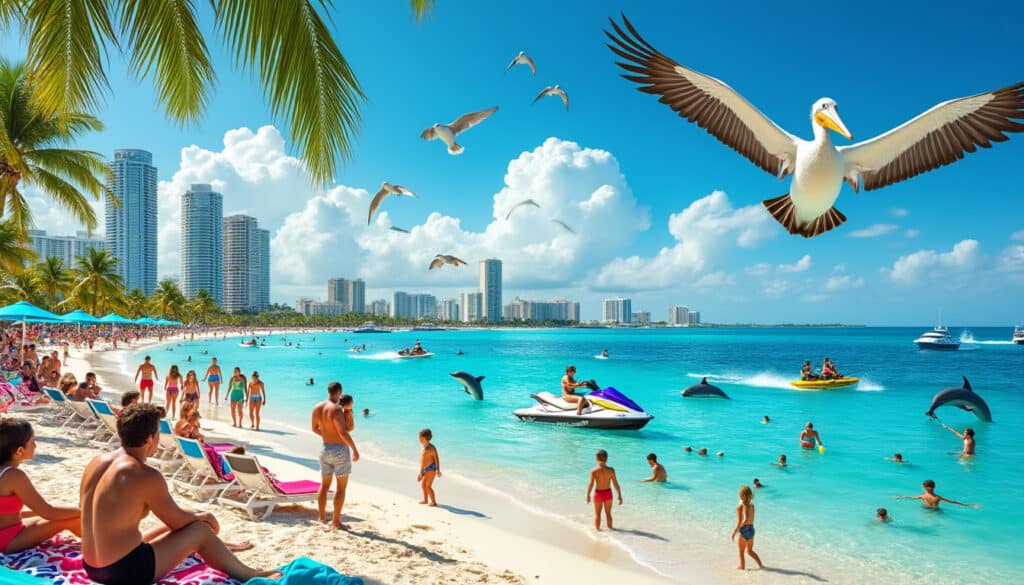
Fun Facts & Curiosities About Fort Lauderdale
Fort Lauderdale, a striking city in sunny Florida, has become a captivating destination for countless visitors worldwide. Known for its sparkling beaches, intricate canals, and vibrant culture, it offers more than just traditional tourist attractions. With fascinating history, an array…
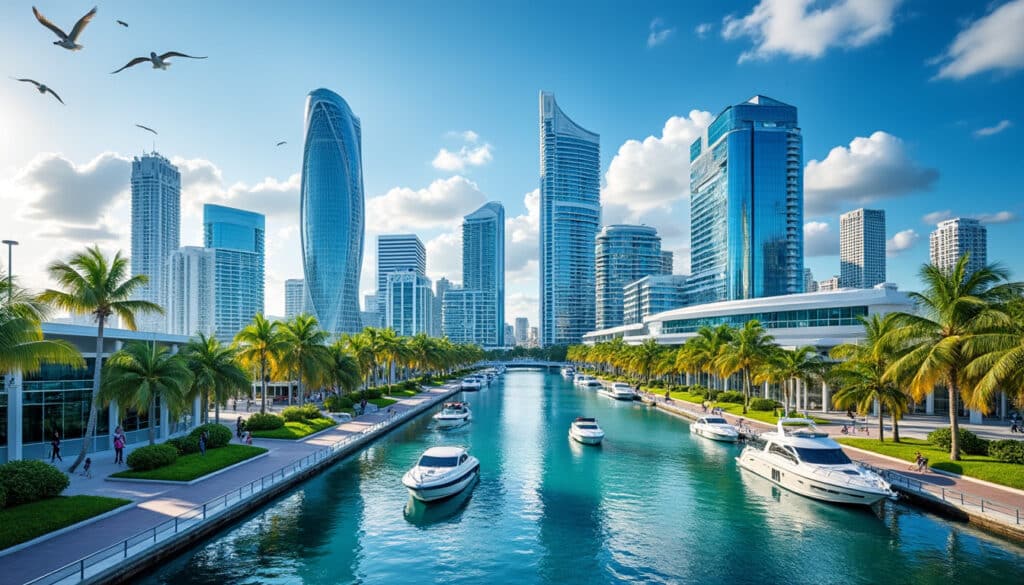
Architecture and urban features of Fort Lauderdale
Often referred to as the “Venice of America,” Fort Lauderdale, Florida is a destination that seamlessly blends history, innovation, and scenic beauty. This vibrant city is renowned for its extensive canal networks, pristine beaches, and an eclectic architectural landscape. On…
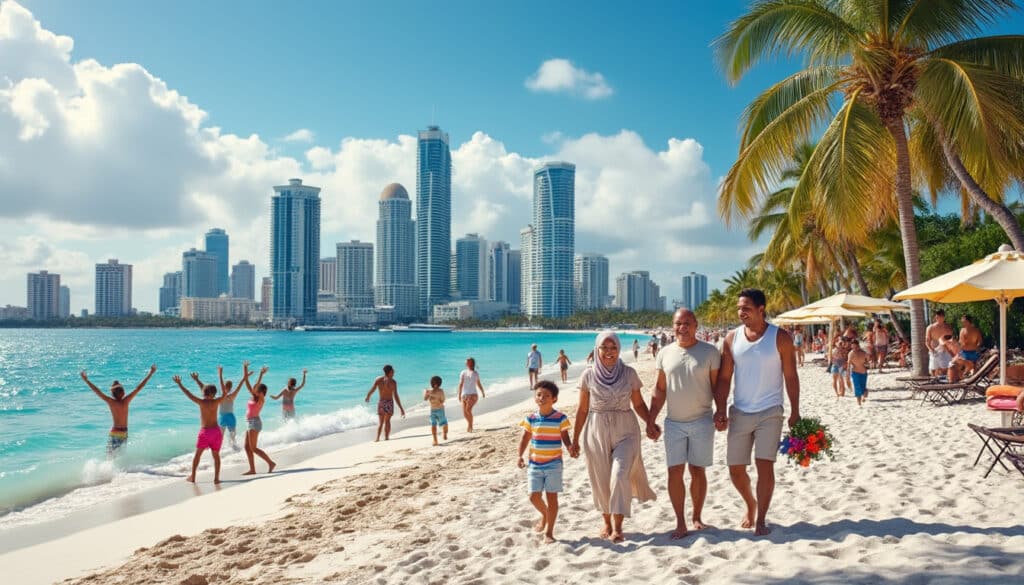
Demographics and geography of Fort Lauderdale
Fort Lauderdale, known as the “Venice of America” for its expansive and intricate canal system, offers a rich tapestry of demographics and geographical allure. This coastal gem, with its pristine beaches and vibrant cultural scene, attracts visitors and residents alike.…
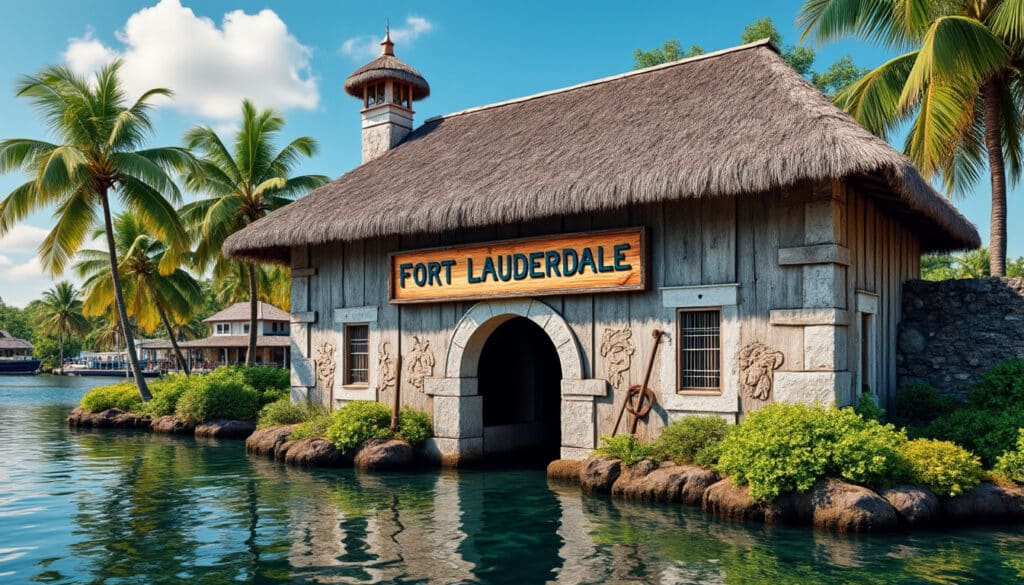
Early Indigenous Inhabitants and European Encounters The history of Fort Lauderdale is closely interwoven with the stories of its early inhabitants and the encounters they had with European explorers. Archaeological evidence suggests that the first natives in the Broward County…
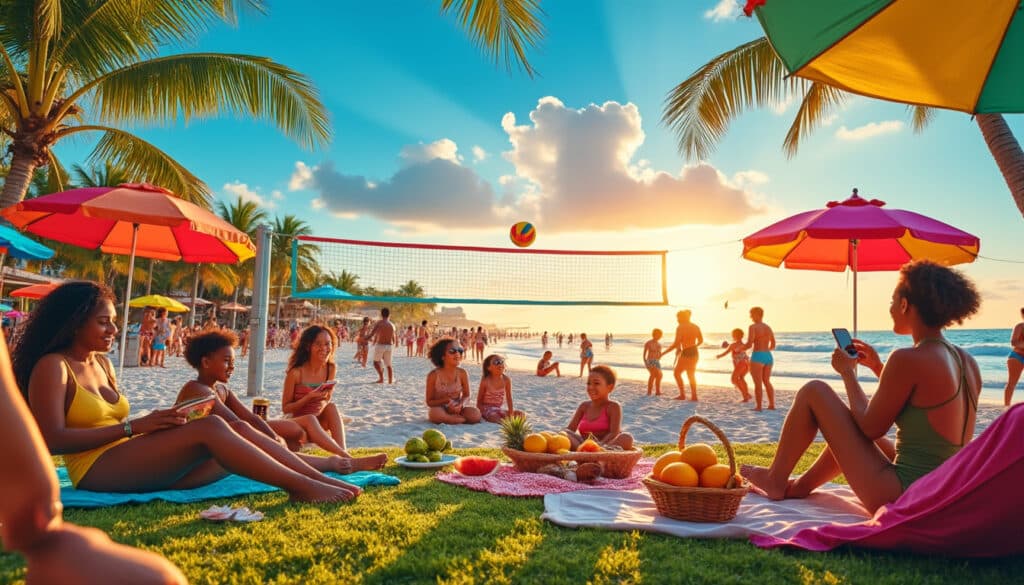
Holidays and celebrations in Fort Lauderdale
In the Sunshine State, Greater Fort Lauderdale shines brilliantly during the holiday season, offering an enticing fusion of tradition, culture, and modern flair. Whether seeking holiday lights along Las Olas or enjoying beachfront festivities, this area provides a wealth of…
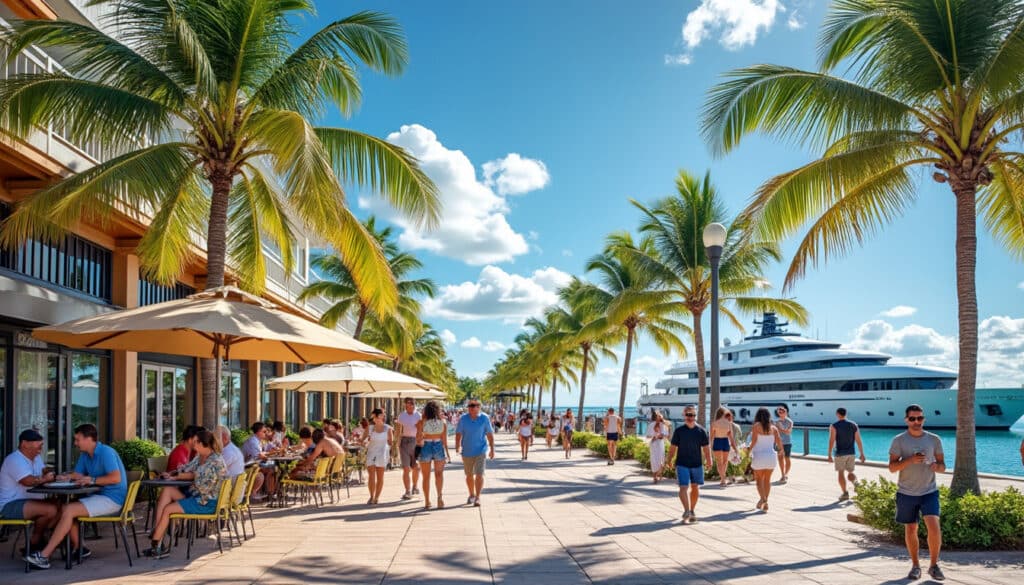
Language and spelling of Fort Lauderdale
Nestled along the sun-drenched shorelines of Florida, Fort Lauderdale stands as a vibrant hub of culture, tourism, and maritime allure. Renowned for its sprawling beaches and dynamic urban life, this coastal gem offers a plethora of intriguing elements to explore,…
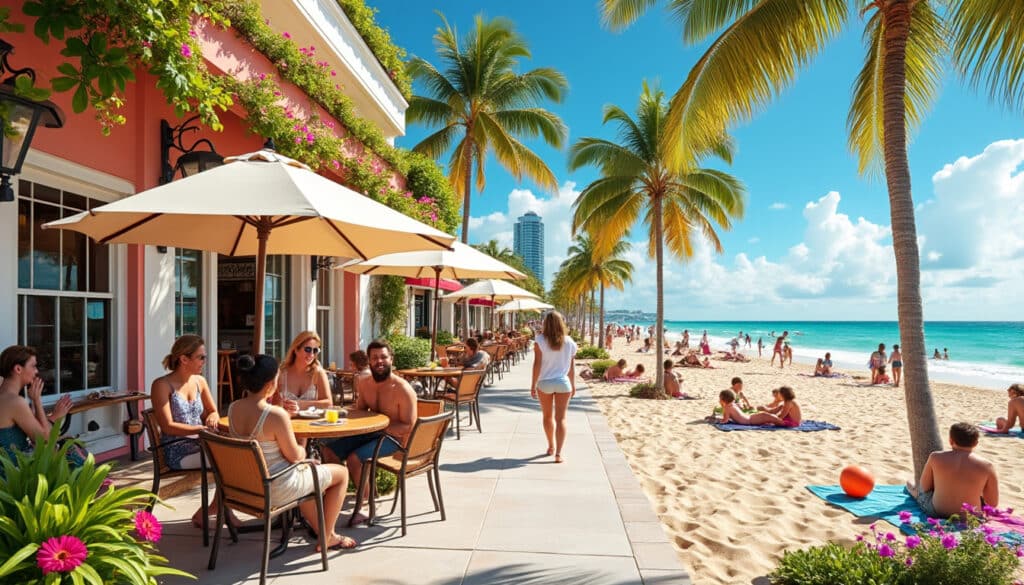
Local tips for tourists in Fort Lauderdale
Fort Lauderdale, often referred to as the “Venice of America,” is a vibrant hub for tourists seeking sun, sand, and a touch of culture. Nestled on Florida’s southeastern coast, this city offers a plethora of activities tailored for both beach…

Names, flags, and identity of Fort Lauderdale
Renowned for its beautiful coastlines and vibrant yachting scene, Fort Lauderdale’s name is steeped in a rich history that combines military feats, cultural evolution, and natural beauty. Nestled in sunny Florida, this city has grown from a strategic military fort…
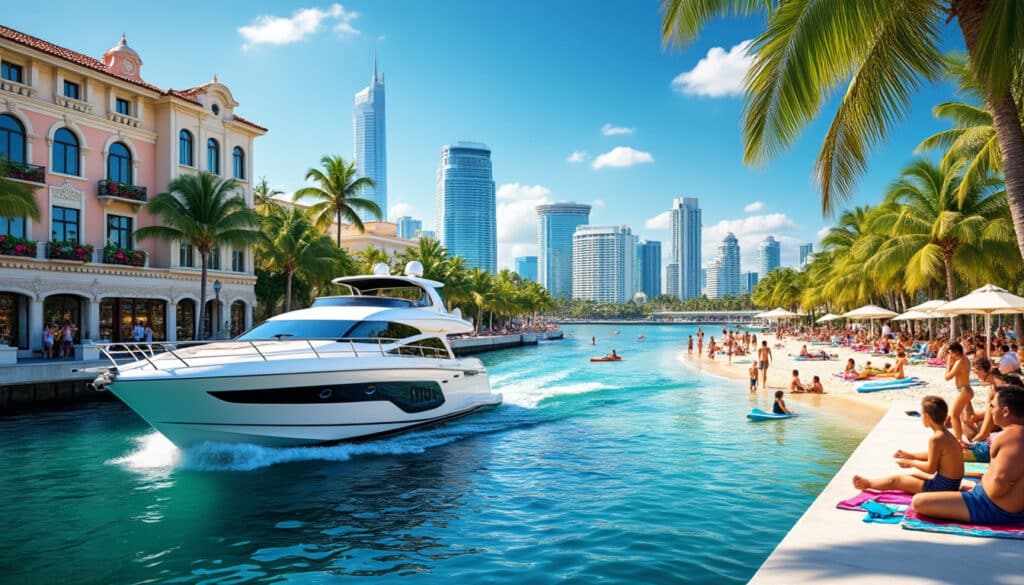
Reputation and identity of Fort Lauderdale
Fort Lauderdale, often overshadowed by its flashy neighbor Miami, possesses its own unique blend of characteristics that contribute to its reputation and identity. Known as the “Venice of America,” this enchanting city is home to an extensive network of canals,…
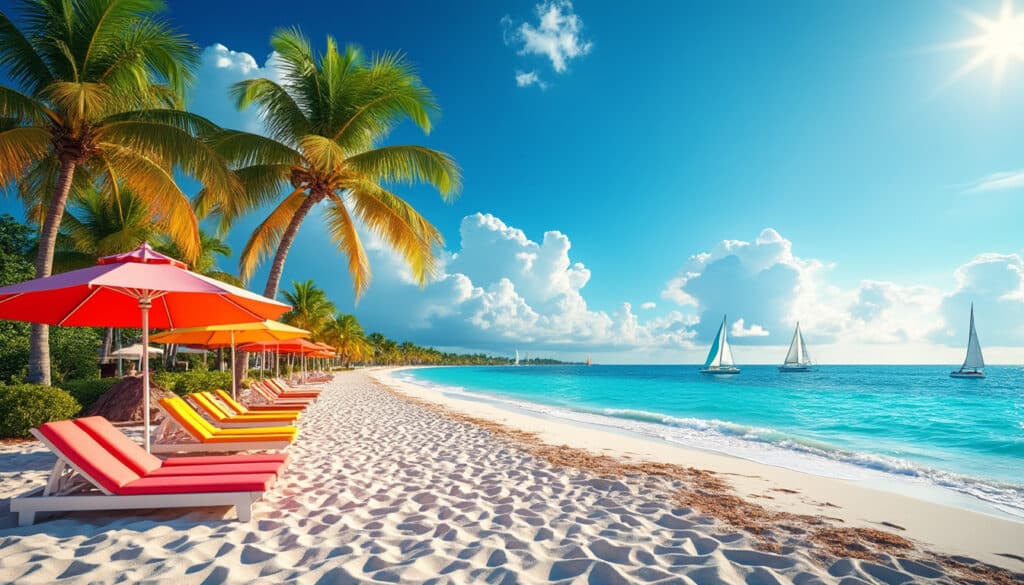
Climate & Weather in Fort Lauderdale
Fort Lauderdale, a sun-drenched paradise in Florida, is famed for its picturesque beaches, intricate canal system, and ultimate vacation allure. Understanding the climate and weather patterns of this coastal city is essential for travelers and residents alike. Knowledge of the…
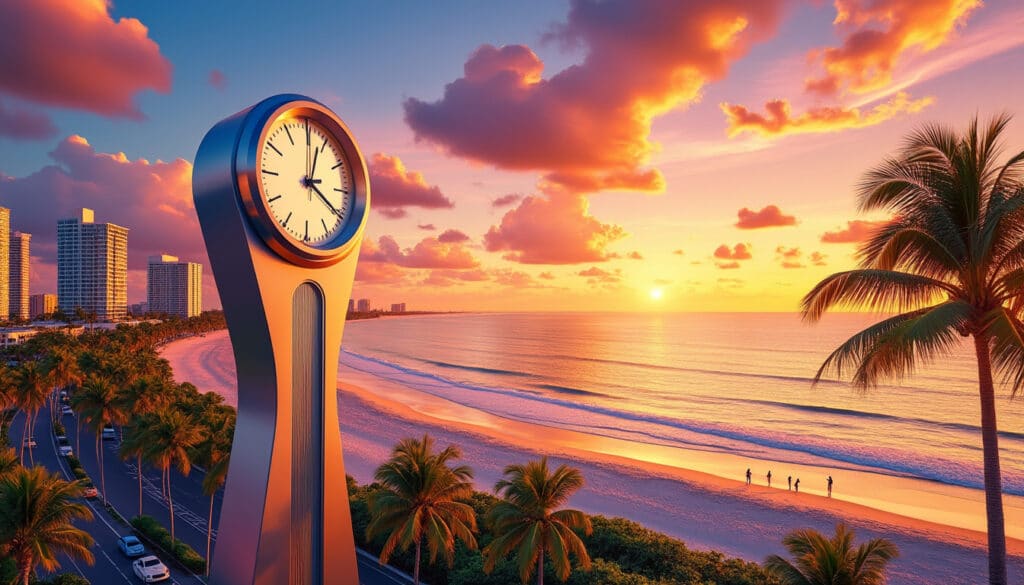
Time and time zone in Fort Lauderdale
🌴 Known for its beautiful beaches and bustling culture, Fort Lauderdale offers more than just scenic views. A hub of diverse experiences, it’s a place where time gains a unique dimension. From the daily rhythm determined by its Eastern Time…
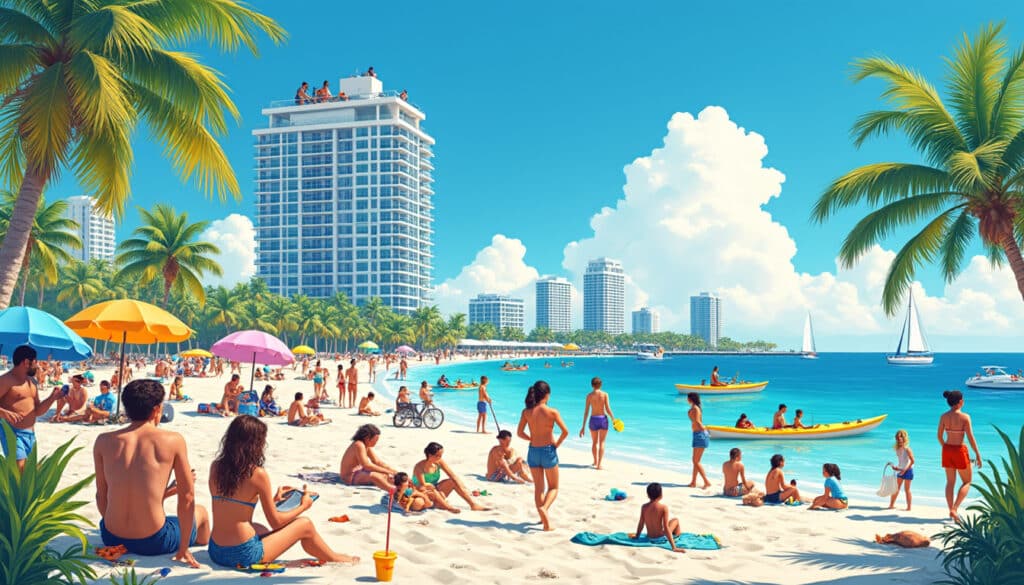
Unusual facts and social issues in Fort Lauderdale
Fort Lauderdale, often recognized for its sun-kissed beaches and vibrant nightlife, harbors an array of unusual facts and social intricacies that paint a more complex picture of this coastal city. Known as the “Venice of America” due to its vast…
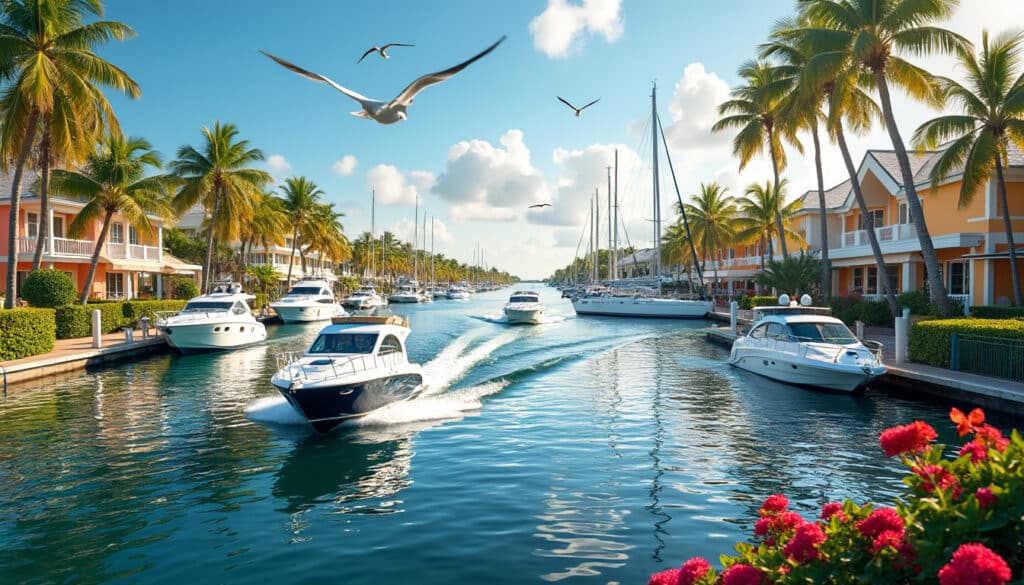
What does Fort Lauderdale look, smell, feel like?
Exploring the vibrant city of Fort Lauderdale can be a multi-sensory adventure with its stunning waterways, bustling arts scene, and culinary delights that offer an immersive experience for locals and tourists alike. Known for its nickname, the “Venice of America,”…
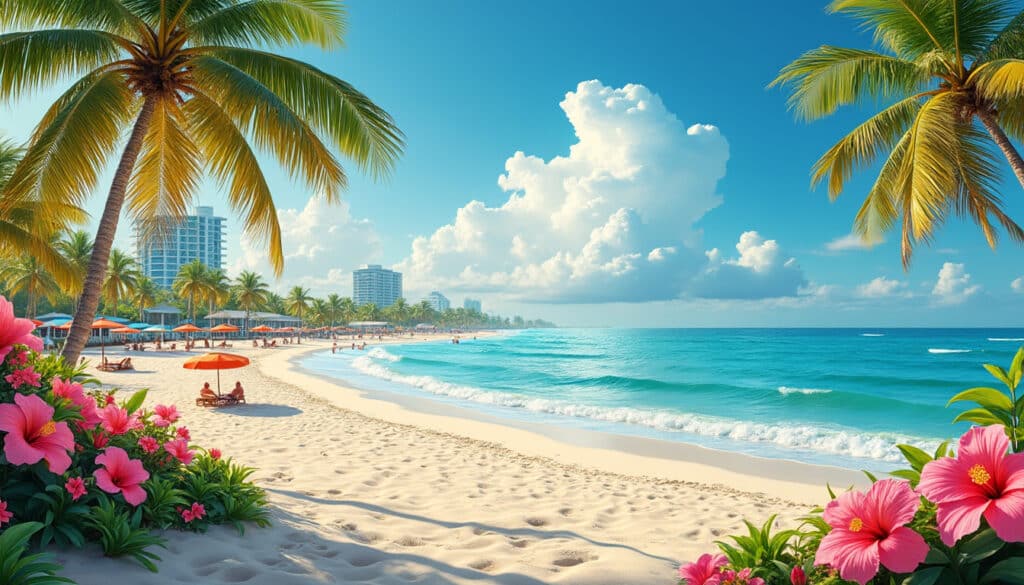
What does Fort Lauderdale smell like?
In Fort Lauderdale, a city renowned for its picturesque beaches and year-round tropical warmth, the scent that fills the air can be as distinctive as its skyline. Imagine walking along the sandy shores with a breeze carrying the whisper of…
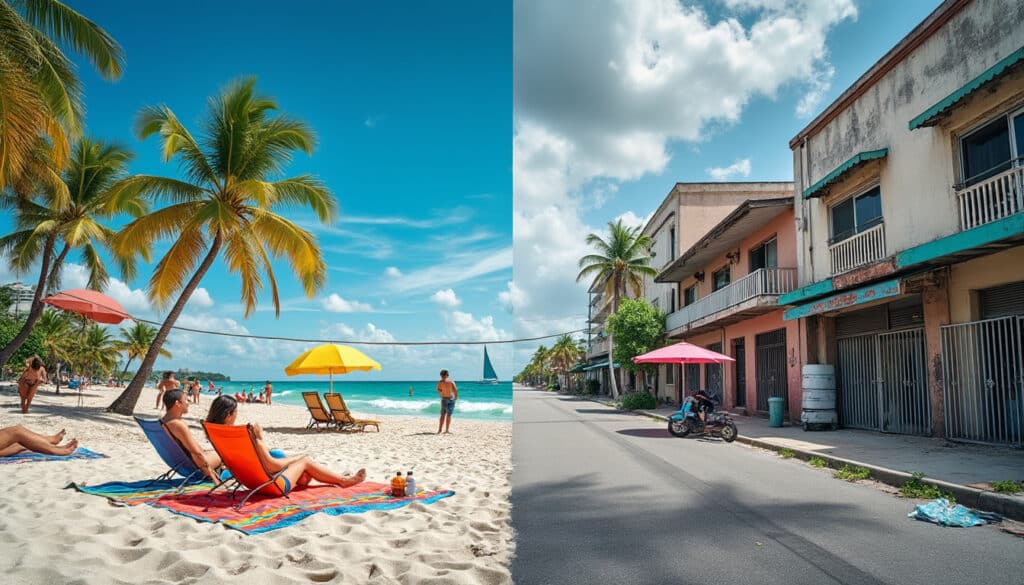
The question of whether Fort Lauderdale is overrated has sparked numerous debates among travelers, locals, and potential residents alike. As one of Florida’s bustling coastal cities, Fort Lauderdale is renowned for its picturesque canals, vibrant lifestyle, and sun-kissed beaches. Despite…
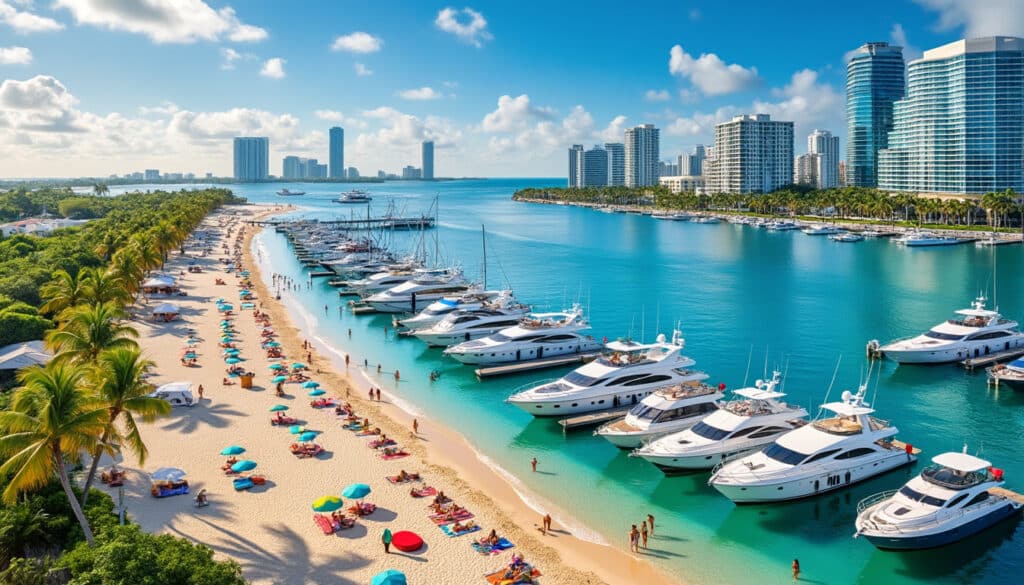
What does Fort Lauderdale look like?
Fort Lauderdale, a gem nestled along Florida’s southeastern coast, showcases a blend of the vibrant, serene, and historic. Known fondly as the “Venice of America” due to its intricate canal system, this city is a mélange of stunning beaches, elegant…

